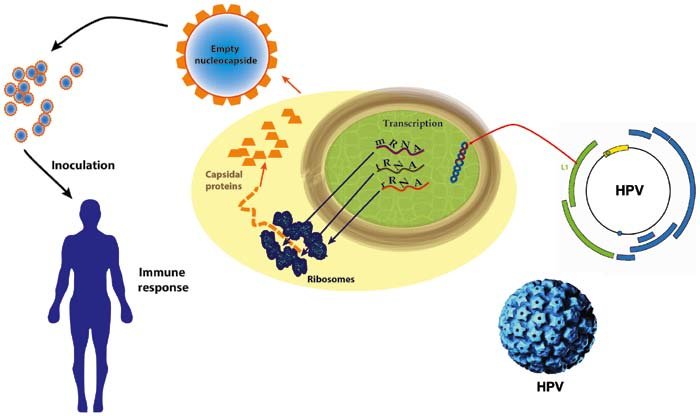Understanding the HPV Vaccine
HPV vaccines are immunizations that prevent infection from certain types of genital warts by specific strains of the human papilloma virus. Available vaccines protect against two, four, six, or eight types of HPV. They are all designed to protect women, but men can also receive an HPV vaccination to reduce the chances of acquiring a genital wart from a partner who has contracted the disease.
The two most common types of HPV vaccines, Gardasil and Cervarix, are available for both boys and girls. Both types are approved by the Food and Drug Administration (FDA) and should be considered by any doctor or healthcare professional that treating patients who may have genital warts or other sexually transmitted diseases (STDs). HPV vaccines can protect against strains of HPV found in genital warts, as well as strains not previously identified as having any effect on the health of adults.
The HPV vaccines that are currently approved by the FDA and recommended for use in people of all ages and sexual orientations include Gardasil and Cervarix. HPV vaccines are not 100 percent effective, but research is ongoing on new vaccines and new ways to deliver them.
The Gardasil vaccine, which is also called Gardasil 9, was originally developed to help prevent cervical cancer, but is now being used to prevent transmission of the human papilloma virus to sex partners through sexual activity. A woman who is infected with HPV and still has an active cervix may develop cervical cancer. The vaccines protect her against all strains of the HPV, including those that have not yet been identified as being responsible for cervical cancer.
Unlike many other HPV vaccines, Gardasil does not require any changes to one's lifestyle. Unlike some vaccines that require daily dosage reminders and have side effects, Gardasil is a shot that takes place in the upper arm. This makes it easier for a person to administer to their children.
As soon as a person becomes infected with the genital warts, they must start treatment immediately. While the majority of the time, the virus remains dormant in the body, there are cases in which the virus does not go away. In such instances, the virus may mutate into a more dangerous form and then again, must be treated.

HPV vaccines, in addition to preventing transmission to sexual contact, can also help protect men from contracting HPV through anal sex. sexual contact. Men who engage in anal sex with people who have recently had their own HPV or have multiple sex partners are particularly vulnerable to contracting the virus.
The HPV vaccine that is the best protection against contracting HPV, however, is the HPV vaccine Gardasil. This vaccine can help prevent transmission to sexual partners even if one is immune to the virus. This ensures that an individual will not contract it from someone they have no prior knowledge of having contracted it. By taking a Gardasil vaccination when diagnosed with HPV, individuals can enjoy the protection they need to prevent becoming infected with it or even die from it.
HPV vaccines do not require the use of antibiotics in order to help with the treatment process
In fact, these vaccines do not even have to be taken on a long-term basis. In most cases, individuals can experience side effects such as fever, headache, fatigue, and muscle aches, but these side effects usually diminish after three days. Most of the time, the only side effect experienced by individuals who take the HPV vaccine is pain or discomfort when urinating.
While a majority of people who get an HPV vaccination experience very few or no side effects, some individuals do experience minor discomfort, especially in the first few days after the vaccine has been administered. In these cases, people are advised to rest, ice, and possibly take over the counter painkillers. They may also experience lightheadedness, nausea, vomiting, diarrhea, vomiting, fatigue, or headaches. In addition, those who suffer from pre-existing health conditions, such as diabetes or liver disease, may experience muscle pains.
In some cases, the discomfort caused by HPV does not subside on its own after the initial few days of being vaccinated, but can linger for a couple of weeks. For these individuals, they should contact their physician and be monitored closely. These individuals should avoid intercourse until the discomfort subsides.
Some people report feeling tired or fatigued after the initial two weeks of using the HPV vaccine, but this is rare. Once these symptoms subside, they should continue to the same amount of sleep and activities as they were prior to receiving the vaccine.